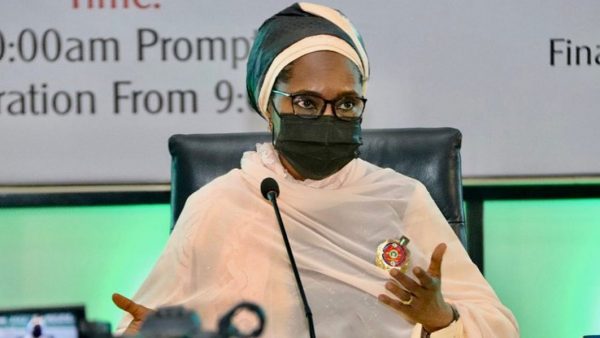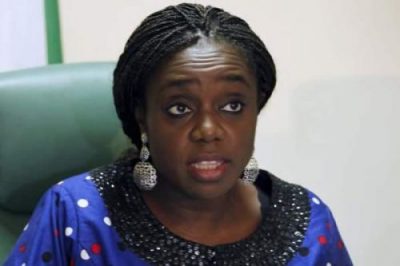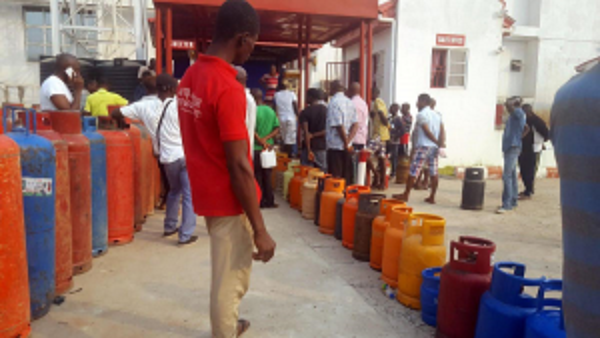Stakeholders canvass stronger recovery plans for IOC debts
• IOCs, indigenous players still owe FG N1.3tr amid borrowing
• Banks loans to oil and gas companies jump to N5.68tr
• Govt’s failure in cash call payment, JV obligations raise concerns
• IMF urges FG to avoid ‘Doom Loop’ by reducing public debt
Players in the financial and oil sector were yesterday, divided over-indebtedness of oil companies operating in Nigeria to the government, amidst the country’s borrowing spree.
No less than 55 oil firms operating in Nigeria failed to pay N1.32 trillion to the government in 2020 alone, according to Nigeria Extractive Industries Transparency Initiative (NEITI).
Coming at a time the country’s borrowing rate heads to N50 trillion, over 77 oil companies had in the preceding year failed to pay the country $6.48 billion.
While some stakeholders have said the failure of the government in meeting its obligations in the payment of cash calls to the oil companies as well as meeting other Joint Venture (JV) agreements is responsible for the indebtedness, others insisted that the government is not doing enough in recovering existing debt.
The debt, according to NEITI, came mainly from royalty oil, royalty gas, concession rentals, Petroleum Profit Tax, Company Income Tax, Education Tax, Value Added Tax and Withholding Tax, among others.
While the International Monetary Fund (IMF) has warned that increasing levels of domestic government borrowing from banks and other emerging markets could threaten Nigeria’s financial stability, some stakeholders have called for an independent audit of NEITI’s debt figures, adding that the government, the oil companies and other stakeholders must come to a roundtable to discuss modalities over the debt.
The IMF has also expressed concerns about a potential “doom loop” for Nigeria and other struggling economies. According to the IMF’s April 2022 Global Financial Stability Report, the average ratio of public debt to the Gross Domestic Product (GDP), a key measure of a country’s fiscal health—rose to a record 67 per cent in emerging market countries last year.
Nigeria’s bank credit to the government topped N14.9 trillion in February 2022, up from N14.2 trillion in January 2022. Bank credit to the government increased by N1.33 trillion in 2021, rising to N13.73 trillion as of December 2021 from N12.4 trillion recorded the previous year.
IMF stated that there is a reason to worry about this nexus between banks and governments. “Large holdings of sovereign debt expose banks to losses if government finances come under pressure and the market value of government debt declines,” it said.
It further noted that a crisis with credit to the government could force banks, especially those with less capital ‘to curtail lending to companies and households, weighing on economic activity.’
“The sovereign-bank nexus could lead to a self-reinforcing adverse feedback loop that ultimately could force the government into default. There is a name for that, too—the ‘doom loop.’ It happened in Russia in 1998 and in Argentina in 2001-02.”
The Debt Management Office (DMO) revealed that Nigeria’s total public debt has risen to N39.55 trillion as of December 2021. This represents N1.55 trillion or 4.1 per cent increase in three months when compared to the N38 trillion total public debt that was recorded as of September 2021.
MEANWHILE, a Central Bank of Nigeria (CBN) report has revealed that the total bank borrowing of oil firms in the downstream and upstream sectors increased by $490 billion from N5.19 trillion in January 2021 to N5.68 trillion in December 2021.
According to data from CBN, operators in the downstream, natural gas and crude oil refining subsectors had borrowed N290 billion from Nigerian banks in 2021 amid the significant rise in global crude oil prices. The debt owed by the oil and gas companies rose to N4.21trillion in December from N3.92 trillion in January 2021. A total of N5.68 trillion owed by oil and gas companies worldwide as of December 2021 represents 23.3 per cent of the N24.38 trillion advanced to the private sector by the nation’s banks.
A human rights lawyer, Femi Falana, had earlier threatened to sue the government over borrowing despite the oil sector’s indebtedness. Falana had said five cycles of independent audit reports compiled by NEITI showed potential recoverable revenues of not less than $20.2 billion.
“The potential recoverable revenues are said to have arisen from underpayment/under-assessment of taxes, royalties, levies and rents. If you require more information in respect of this matter you may wish to contact your colleague, Mrs. Zainab Ahmed, the Minister of State for Budget and National Planning. In her capacity as past Executive Secretary of NEITI, she had called on the Federal Government to recover the said sum of $20.2 billion,” Falana had said.
A breakdown of the oil companies’ indebtedness in 2019 shows that a total of $143.99 million is owed as petroleum profit taxes, $1.089 billion as company income taxes and $201.69 million as education tax.
Others include $18.46 million and $972,000 as Value Added Tax (VAT), $23.91 million and $997,000 as Withholding Tax, $4.357 billion as royalty oil, $292.44 million as royalty gas, while $270.187 million and $41.86 million were unremitted gas flare penalties and concession rentals respectively.
Executive Secretary of NEITI, Dr. Orji Ogbonnaya Orji, had noted that it was important that the process of recovering the “humongous sum be set on a course to support the government in this period of dwindling revenue.
“We, therefore, appeal to these companies to ensure that they remit the various outstanding sums against them before the conclusion of the 2020 NEITI audit cycle to the relevant government agencies responsible for collection and remittances of such revenue.
“NEITI will no longer watch while these debts continue to remain in its reports unaddressed. We will provide all necessary information and data to sister agencies, including anti-corruption agencies, whose responsibilities are to recover these debts into government coffers,” Orji said.
An energy expert, Dauda Garuba, stated that only government could decide whether or not it wants its debt paid by debtor companies.
“There is an existing court case between Falana and the Federal Government on debt recovery from oil firms. In that case, the former is asking the court to compel the latter to recover monies owed by companies so it can stop borrowing to finance infrastructure,” he said.
Another energy expert and founder of Nextier Advisory, Patrick Okigbo, told The Guardian that borrowing might have been adopted as an easier option than recovering existing debt. According to him, NEITI remediation offers a potential source of revenue for the government.
He said: “Borrowing appears to be easier than the difficult work of exhausting all other options”, adding, however, that unremitted fund “is neither an easy nor a sure source of funds.”
PricewaterhouseCoopers’s Associate Director, Energy, Utilities, and Resources, Habeeb Jaiyeola, noted that an independent audit must be agreed on by the Federal Government and the oil companies, as there was a need to agree on the modalities for the debt recovery.
According to him, the oil companies must be given an opportunity to ascertain how the figures were determined, adding that companies doing business in Nigeria were supposed to have agreed to pay necessary taxes.
Chief Executive Officer, Gabe Fasoto & Co, who is the former chairman of the Council and President at the Chartered Institute of Taxation of Nigeria (CITN), Gabriel Fasoto, raised concerns over the normalisation of deficit budgeting in the country.
[AD]“This is, however, avoidable if only governments at all levels can optimise their revenue generation potentials on one hand, and reduce the cost of governance (including appropriate pricing of capital projects’ cost) on the other,” Fasoto said.
He insisted that recovery of outstanding tax alone would turn around the country’s budget deficit woes.
Energy lawyer, Emeka Okwuosa, who is the managing partner, of The Chancery Associates, said it remained disheartening for government to allow oil companies to owe “such humongous amount,” while the country is begging abroad for loans and debt forgiveness.
“We have to improve on our tax recovery and enforcement from oil companies. The process of recovery of debt from oil companies is lax. Once we show seriousness in our enforcement processes and read the riot act, the oil companies will sit up,” he stated.
He lamented that in the area of gas flaring, oil companies have failed to take government officials serious in paying fines. According to him, there was a need for proactive enforcement as well as concrete and positive steps against oil companies, adding that the country must not continue to treat it as business as usual.
Okwuosa said: “As a matter of integrity and transparency, oil companies should evolve best sustainable business practices and pay off their taxes promptly.”
The president, of Petroleum Products Retail Outlets Owners Association of Nigeria (PETROAN), Dr. Prince Billy Harry, believes the future of the country has gradually been mortgaged.
According to him, Nigerians must hold themselves accountable, adding that there was a need for the leadership of the nation to always analyse the total values of all borrowings.
Harry said: “We should not mortgage this country to global wild birds to devour as big predators. I think the government should think very deeply before any further borrowings.”
The Petroleum and Natural Gas Senior Staff Association of Nigeria had in March raised the alarm over the huge losses incurred by operators in the oil and gas industry as a result of vandalism and oil theft.
Festus Osifo, PENGASSAN president, said between October 2021 and February 2022, over 90 per cent of crude oil pumped into the Trans National Pipeline by operators was vandalised.
He noted that this had made Nigeria lose out on accruing more revenue in spite of the current high price of crude oil in the international market.
As a result of vandalism, Osifo says companies are often forced to curtail production when assets/export pipelines are damaged since they cannot export what they produce.








